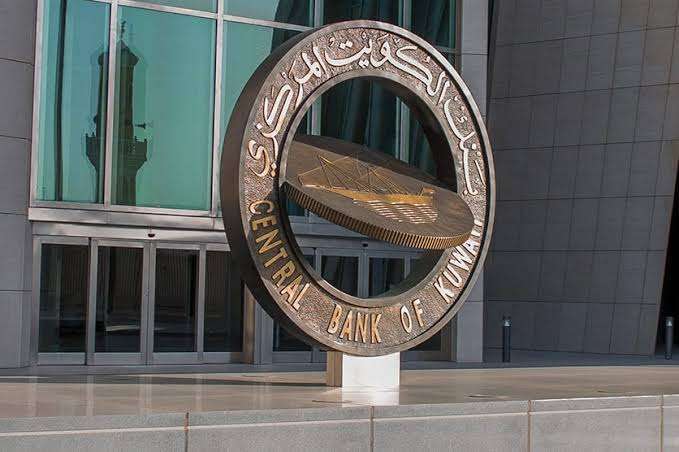Latest News
- To Address Regional Issues, Kuwait Joins The OIC Summit
- Streets, Services, And Infrastructure To Be Developed In Shuwaik...
- Passports Of Kuwaitis Involved In Drug Crimes Abroad Revoked By...
- Right To Privacy And Respect For The Dead
- Compatriots Scam Egyptians
- Mother And Daughter Arrested For Prostitution And Extortion
- Two Male Nurses Break Bones In A Fistfight
- Former Minister Arrested On Arrival Over Graft
- Ministry Of Education Uncovers Salary Payments To Absentees
- Kuwait Banks Seek Clarity From Central Bank On Citizenship Revoc...
- Kuwait Organizes 30 Events To Protect Children From Tobacco Indu...
- Proposal For Residential City South Of 6.5 Ring Road Rejected Ov...
Suspicious Clients' Accounts Should Be Frozen

Al-Rai daily reports that Kuwaiti banks and money exchange companies asked the Central Bank of Kuwait what to do if one of their customers had an account frozen or if he/she was featured on a list of money laundering or terrorism financing suspects. An exchange company and Kuwait's Central Bank are preparing for field visits to local financial institutions that will be conducted by an evaluation team from the National Anti-Money Laundering and Terrorist Financing Committee. This question is timely given the recent discussions between the Central Bank of Kuwait and the exchange company.
There were no names on the sanctions lists that matched any of its clients. Kuwait's Central Bank aims to ensure that exchange companies, banks and finance companies can surpass the expected assessment that will be conducted by the Financial Action Task Force (FATF) in the coming months on Kuwait and its financial institutions' compliance with anti-money laundering and terrorist financing requirements, and that the correspondent bank used in transfers is not run by people on a blocked list.
Furthermore, the supervisory regulator reminded financial entities that if their client's name appears on a list of sanctions, whether international or local, they must inform the relevant authority within 3 days after the decision is released by the relevant committee. As soon as the affiliated units receive the data in this regard, the ball will be in the Ministry of Foreign Affairs' court. The Central Bank of Kuwait has directed exchange companies to ascertain the identity of the real beneficiaries and the periodicity of the verification work, using data available on commercial registration to verify the identities of these individuals using information collected from the Kuwait Chamber of Commerce and Industry's data network, especially if they do not have direct access to the commercial registry database to verify the basic information of customers and real beneficiaries.
In a notice to exchange companies, the supervisory regulator stressed that they must comply with the decisions of the local authorities concerning freezing accounts of individuals and entities and not to deal with them in the future. He stressed that this procedure is not limited to individuals and entities whose balances are frozen only by UN Security Council sanctions committee decisions. According to the Central Bank, exchange companies should use companies that allow for periodic and immediate updating of the freezing lists using specialized programs, after the Central Bank noted that some exchange companies manually updated their lists of individuals and entities whose balances are frozen, as evidenced by their testimony.
The CBK has provided the financial institutions with 35 questions received from the National Committee against Money Laundering and the Financing of Terrorism which will be addressed by the "FATF" team during its field visit to banks and financial institutions to assess compliance with anti-money laundering and terrorism financing requirements. The CBK maintains that it is important to demonstrate the commitment of financial institutions to upcoming requirements in the area of anti-money laundering and financing of terrorism. In addition to asking the local financial institutions whether they found suspicious cases in which the information kept about the real beneficiaries did not match the updated information about them, the Central Bank was likely to ask about procedures for confirming the true beneficiaries' identity when they are foreigners.
Trending News
-
 Expat Residency Law Amended By Kuwait Ministerial...
20 April 2024
Expat Residency Law Amended By Kuwait Ministerial...
20 April 2024 -
 Ministry Announces Separate Time For Amnesty Seeke...
21 April 2024
Ministry Announces Separate Time For Amnesty Seeke...
21 April 2024 -
 The Ministry Connects With Violators Of Residency...
23 April 2024
The Ministry Connects With Violators Of Residency...
23 April 2024 -
 AstraZeneca Admits Covid Vaccine Can Cause Rare Si...
29 April 2024
AstraZeneca Admits Covid Vaccine Can Cause Rare Si...
29 April 2024 -
 Work Permits Will Be Issued For One Year Under The...
27 April 2024
Work Permits Will Be Issued For One Year Under The...
27 April 2024 -
 3 Expats Caught In Salmiya With 213 Bottles Of Loc...
23 April 2024
3 Expats Caught In Salmiya With 213 Bottles Of Loc...
23 April 2024 -
 Temperature Increases Cause Electricity Load Index...
21 April 2024
Temperature Increases Cause Electricity Load Index...
21 April 2024 -
 Al-Nuer Festival Celebrates Kuwaiti Agriculture Wi...
22 April 2024
Al-Nuer Festival Celebrates Kuwaiti Agriculture Wi...
22 April 2024 -
 Peak-time 'cut-offs' Raise Fears Of An Electricity...
22 April 2024
Peak-time 'cut-offs' Raise Fears Of An Electricity...
22 April 2024 -
 Road Trip From Kuwait To Bahrain Via Saudi: Travel...
22 April 2024
Road Trip From Kuwait To Bahrain Via Saudi: Travel...
22 April 2024












Comments Post Comment